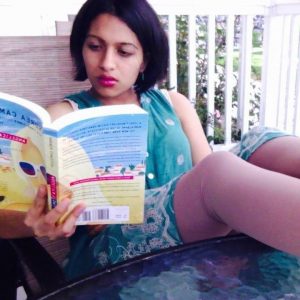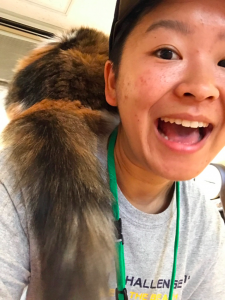As the semester approaches, here are some things you can do to prepare!
- GLOW: Some professors use GLOW to learn students’ names before classes begin or during the first couple weeks of classes. You can make it easier for your professors to learn the name and pronouns you use by changing your GLOW settings.
- You can add pronouns and name pronunciation. Click on “Account,” then go to “Profile.” On the right side of the screen, you should see “Edit Profile.” In the “Biography” box, you can add the pronouns you use or the correct pronunciation of your name so your professors will know ahead of time.
- You can change your photo. If your picture does not represent your current gender identity/expression (or even just aesthetic), you can change your picture by going to Account → Profile → Edit Profile. Click on the photo next to your name and replace it with one of your choice.
- WSO: You can change your WSO settings as well! Go to WSO, then click Facebook → Edit.
- Add pronouns. You can include your pronouns if you wish!
- Change your photo. As with GLOW, you can change your photo for any reason.
- Indicate whether or not you are off cycle. If you check the off-cycle box, WSO will subtract .5 from your class year. (If you are incorrectly listed, you can contact them.)
- Choose whether your profile, dorm address, and hometown will be visible. Note that WSO Facebook is only accessible to people logged in to Williams accounts, so your profile will not be public no matter what. Still, if you don’t want people to be able to find you on WSO, you can make yourself unsearchable. Similarly, you can choose whether your dorm address and hometown are visible or not.
- Name Change: If you want to change your campus name, now might be a good time. (You can also change your name legally, though the timing with this does not matter as much.)
- If your campus name no longer matches up with the name you prefer, you can change it by going to PeopleSoft Self Service → Campus Personal Information → Campus Name Change Form. To read more about the details of this process and where your name will be changed vs. where it will remain the same, check out this guide from the Registrar.
- If you are looking to change your legal name, the Davis Center has some resources but be warned that they were last updated in 2012. All the relevant forms are available at mass.gov.
- Accommodations: If you anticipate needing accommodations of any kind (or just want to see what is offered), email G.L. Wallace or Jean Grant. You can also reach them by calling (413) 597-4672 or going to the Office of Accessible Education in Paresky 203.
- Counseling: Counseling spots can fill up quickly, so once you know your schedule, you might want to book a spot to avoid the waitlist! Call the Health Center at (413) 597-2353.
- Resources: Now’s a good time to review the resources available to you at Williams and think about which ones you might use this semester! It can pay off to be proactive now and build a relationship with a counselor/chaplain/writing tutor/etc. while you still have the time to do so.


 Megumi Asada ’17, a former AWM officer, wrote the following short guide to applying to graduate school in math from Williams. They are currently teaching high school math through a teaching nonprofit called Blue Engine. The following year, they will be studying math at Cambridge on a Herchel Smith Fellowship. Feel free to
Megumi Asada ’17, a former AWM officer, wrote the following short guide to applying to graduate school in math from Williams. They are currently teaching high school math through a teaching nonprofit called Blue Engine. The following year, they will be studying math at Cambridge on a Herchel Smith Fellowship. Feel free to